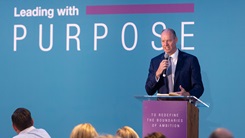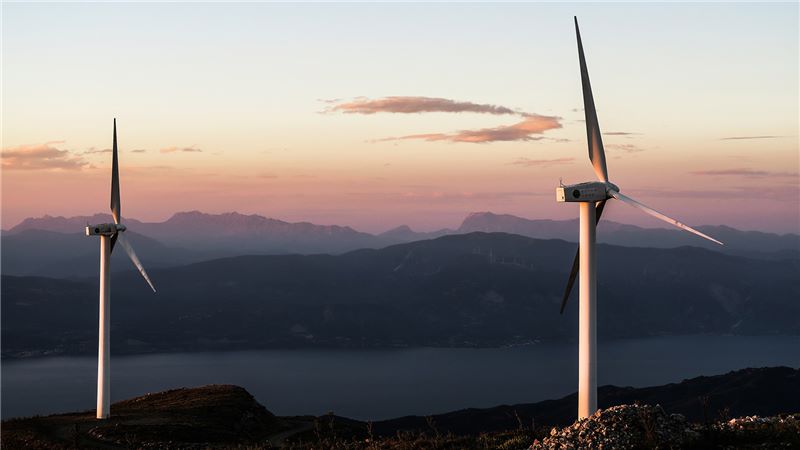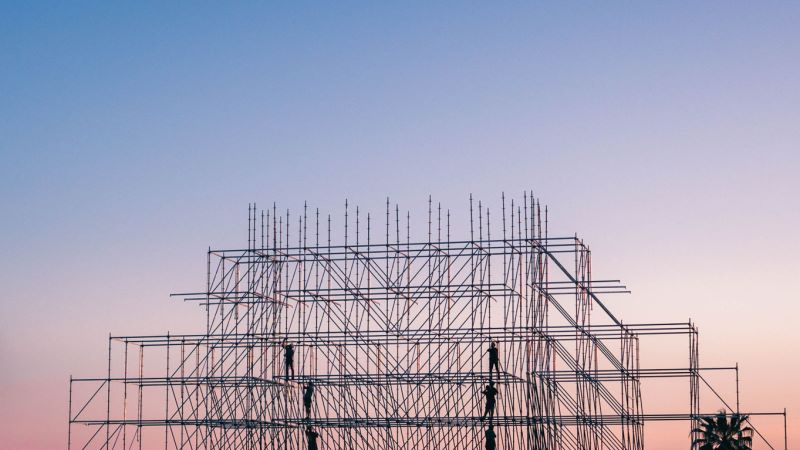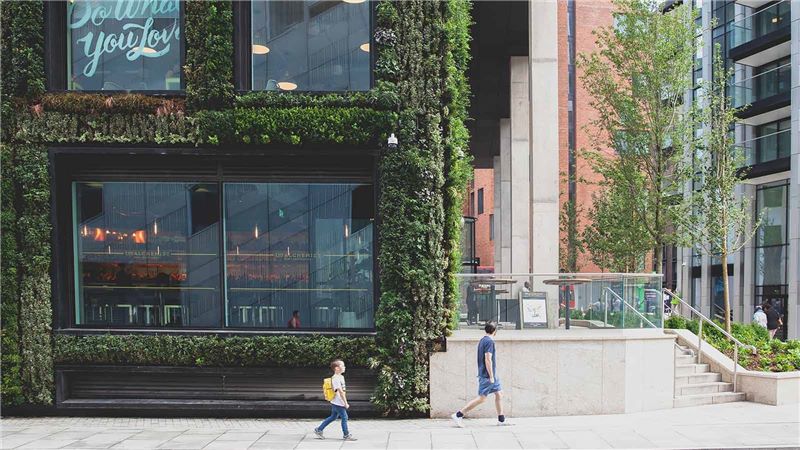Eekowall
THE CHALLENGE
The built environment faces an immense challenge – to not only continue to reduce its carbon emissions but also conserve valuable materials as part of a circular economy. One of the often-overlooked aspects of circularity is the adaptability of materials and components, and their reuse throughout the changing lifecycle of a building. Too frequently, the components used in a building must be discarded. But with the built environment accounting for 60% of global waste, it is imperative that steps are taken to better future-proof the materials that are so vital to our industry.
One such material is plasterboard. It is often produced onsite, and also requires additional cutting and shaping that prohibits reuse. This adds significant time to programme and results in further carbon emissions from waste created onsite.
Nevertheless, plasterboard remains a pivotal part of commercial and residential interiors, forming layouts and housing wiring that is essential to building operation. So as the built environment becomes more circular and designing future-proof buildings becomes the norm, we need a practical alternative; one that can reduce emissions and increase adaptability, but also maximise productivity and reduce the construction phase programme.
THE APPROACH
With this in mind, Mace collaborated with a sub-contractor on one of our commercial office projects in City of London to implement a new prefabricated wall system – dubbed ‘Eekowall’. The system uses dry lined panels which are pre-assembled to the correct height and seamlessly interlock, requiring simple fixing. The panels are also designed to incorporate door and services openings and contain integrated conduit channels to direct electrical or data cables to any position within the wall module.
The panels benefit from modern methods of construction, allowing for energy efficient and precise manufacturing, removing the time and energy investment that would be needed to build on site. This also cuts down on longer term material wastage as the modules can be reverse disassembled for modification or repair. This means that however the needs of the occupants change over time, the walls can seamlessly adapt to meet them.
The Eekowall solution on this project led to a carbon saving of over 1t CO2e and reduced the waste of materials by 95%. The greater sustainable benefits went hand in hand with a drastically more efficient build – 411% faster than traditional dry walling installation. This is equivalent to 81.3 days of onsite time
As the industry looks to adopt solutions that lower their carbon output and minimise material waste, innovations such as Eekowall play a straightforward yet pivotal role in creating a more resource conscious built environment.













